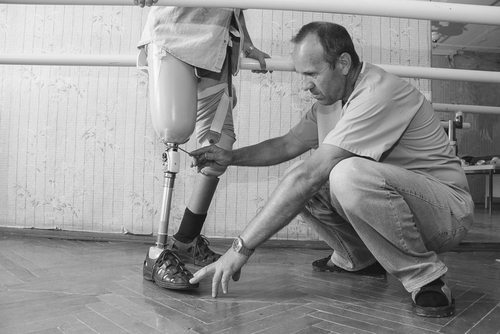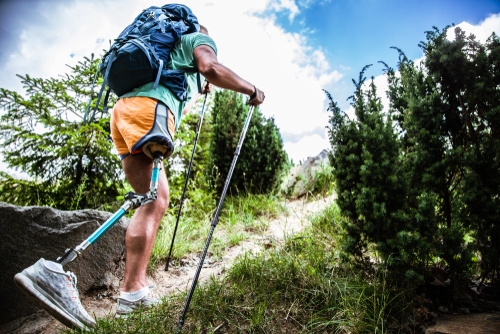About Us
The Tasmanian Amputee Society [TAS] exists solely to promote, assist and carry out projects which are of benefit to amputees. We attempt to assist amputees by providing the following services:
- Providing direct face-to-face Peer support to new amputees
- Assisting amputees to transition into the NDIS support scheme
- Promoting co-operation between all organisations and persons engaged in the furtherance of services to amputees
- We provide supportive assistance to amputees and their families, through the provision of information and skilled personnel
- The Society liaises with Government Departments and Statutory Agencies on behalf of our members
- TAS assists in the education of the public in the needs of amputees
- We encourage professional staff to take an interest in the needs and lifestyles of amputees
- TAS undertakes and collates research and training in all areas that affect amputees
- We coordinate the training and rehabilitation of amputees through support services
- The Society sources or links charitable services which are beneficial to our members
- TAS is a member of the Project Steering Committee for the Amputee Model of Care


OUR FOCUS
Speaking to another amputee can help amputees understand the pathways ahead. Peer Support links individuals (and their families) pre or post amputation with trained amputees who have experienced living with and adapting to limb loss. Our program is designed to match members with someone of a similar age, level of amputation and gender.
Losing a limb/s can lead to a range of physical and emotional changes and challenges for you and your loved ones. Speaking with another amputee can play an important role in your preparation, recovery and rehabilitation of limb loss. In fact, speaking to someone who personally understands what it means to lose a limb can often be a great relief; you can ask questions and discuss issues that only someone who has been through limb loss can answer.
HOW DOES PEER SUPPORT WORK?
The TAS Peer Support Program enables members to connect with trained amputee volunteers who are willing to share their knowledge and experience to assist others during their transition to recovery.
- Our Program connects amputees in hospitals and rehabilitation centres with trained Peer Support Volunteers
- Peer Support Volunteers are individuals who have adapted to limb loss and willingly give of their time to support others during their recovery
- Peer Support Volunteers can also assist family members or care givers who want to better understand how they can
help a loved one who has experienced (or is about to undergo) an amputation - Peer Support Volunteers can direct members toward clinical and lifestyle information
REQUEST A PEER SUPPORT VISIT NOW
Learning that you are facing an amputation can be a frightening prospect. Coming to terms with the thought of surgery is not always easy and can lead to many questions and concerns. Contact us today to request a visit, or speak to another amputee who has overcome the challenges of limb loss and can understand how you are feeling.

STEP 1
Request A Peer Support Visit

STEP 2
We Contact You

STEP 3
We Arrange Peer Support
BECOME A MEMBER
It is our aim to develop an ongoing relationship with all amputees across Tasmania. Membership is FREE but we do ask for a small annual administration fee to assist with communication costs and processing.
Membership provides the means to support those struggling with transition to the NDIS. In the past we have maintained a strong Peer Support programme but have lacked the resources to provide the broad range of additional services required by our members. Membership now provides the means to interact with other amputees and to gain access to additional support necessary to deal with your disability.
Free membership allows you to participate in a range of the services listed below:
- Newsletter
- Access to Peer support
- Assistance with the NDIS application process
- Invitations to regional wellness seminars
- Invitations to Regional financial seminars
- Access to lifestyle | diabetes 2 programmes
- Access to Membership Forums
- Referral to specific advice or expertise
[Mechanical |emotional | lifestyle | diabetes] - Access to Annual Report for TAS
- Attendance at AGM’s [No voting rights]
- Access to research on Social | mechanical
developments for amputees - Access to university research
- Awareness and involvement in amputee sporting events | fundraising activities
- The opportunity to create feedback on needs and requirements
- Opportunity to participate in medical or social trials
